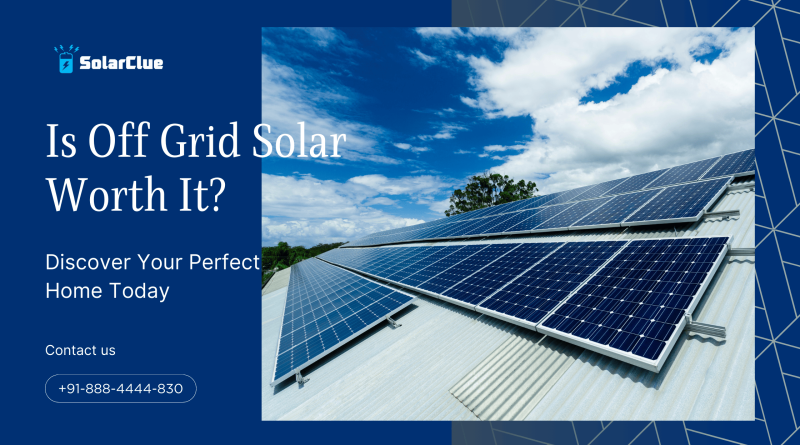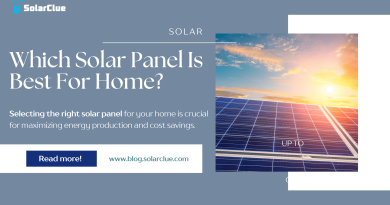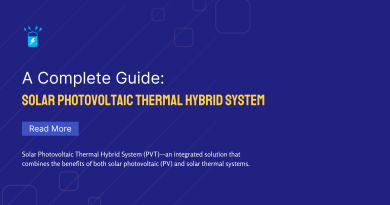Is Off Grid Solar Worth It?
As the world increasingly shifts towards renewable energy, many homeowners and businesses are considering the benefits of off-grid solar systems. But is going off the grid truly worth the investment? In this blog, we’ll explore the pros and cons of off-grid solar, helping you decide whether it’s the right choice for your energy needs.
Table of Contents
What is an Off-Grid Solar System?
An off-grid solar system is a standalone power system that operates independently of the public electricity grid. It generates electricity from solar panels and stores it in batteries for use when the sun isn’t shining. This system is completely self-sufficient, meaning it doesn’t rely on external power sources.
The Benefits of Off-Grid Solar Systems
1. Energy Independence:
One of the most significant advantages of off-grid solar is the complete independence it offers from the public electricity grid. You generate and use your own power, making you self-reliant and immune to power outages or grid failures.
2. Sustainability:
Off-grid solar systems are a green energy solution, relying entirely on renewable solar power. By reducing your reliance on fossil fuels, you contribute to a cleaner environment and help combat climate change.
3. No Electricity Bills:
Once your off-grid system is installed, you won’t have to worry about monthly electricity bills. While the initial investment can be substantial, the long-term savings can be significant, especially in areas where electricity costs are high.
4. Remote Living:
For those living in remote areas where grid access is limited or non-existent, off-grid solar is often the only viable option. It allows people to live comfortably in locations far from traditional power infrastructure.
5. Resilience and Reliability:
Off-grid systems are designed to be robust and reliable, often incorporating battery storage to ensure continuous power supply. This resilience is particularly valuable in areas prone to natural disasters or frequent grid failures.
The Challenges of Off-Grid Solar Systems
High Initial Costs:
The upfront cost of an off-grid solar system can be high. This includes the price of solar panels, batteries, inverters, and other necessary components. Additionally, installation and maintenance costs can add to the expense.
Battery Maintenance and Replacement:
Batteries are a critical component of off-grid systems, but they require maintenance and eventually need to be replaced. Lithium-ion batteries, while longer-lasting, are more expensive than traditional lead-acid batteries.
Limited Power Availability:
Off-grid systems must be carefully sized to meet your energy needs. If your energy consumption exceeds the capacity of your system, you could experience power shortages, especially during extended periods of cloudy weather or high energy use.
Energy Efficiency Requirements:
To make an off-grid system viable, you may need to adopt energy-efficient appliances and reduce overall energy consumption. This can require a change in lifestyle or habits, which might not be suitable for everyone.
Scalability:
While off-grid systems can be scaled up by adding more panels or batteries, this often involves significant additional costs. Expanding an off-grid system can be more complicated and expensive than expanding a grid-tied system.
Is Off-Grid Solar Worth It?
Whether or not off-grid solar is worth it depends on your specific circumstances:
Location:If you live in a remote area without reliable grid access, off-grid solar might be your best option. In such cases, the benefits of energy independence and reliability outweigh the challenges.
Lifestyle: If you’re committed to living sustainably and are willing to adapt your energy usage, off-grid solar can be a rewarding investment. It offers the satisfaction of self-reliance and the ability to live with a minimal environmental footprint.
Financial Considerations: While the initial costs are high, off-grid solar can be financially beneficial in the long run, especially if you’re in an area with high electricity rates or frequent power outages.
Energy Needs:If your energy needs are moderate and you can manage with the power generated by your system, off-grid solar can provide a reliable and cost-effective solution. However, if your energy demands are high, you’ll need to carefully assess whether an off-grid system can meet those needs without becoming prohibitively expensive.
Conclusion: Making the Right Choice
Deciding whether off-grid solar is worth it requires careful consideration of your location, lifestyle, financial situation, and energy needs. For those seeking energy independence and a sustainable way of living, off-grid solar can be a highly rewarding investment. However, it’s essential to weigh the initial costs and ongoing maintenance against the long-term benefits.
Thinking About Going Off-Grid?
Before making a decision, consult with a solar expert who can help you assess your energy needs and determine the best system for your situation. Whether you choose to go off-grid or stay connected to the grid, embracing solar power is a step towards a more sustainable and self-reliant future.
Ready to Learn More?
Contact us today to explore your options and take the first step towards energy independence with solar power.




